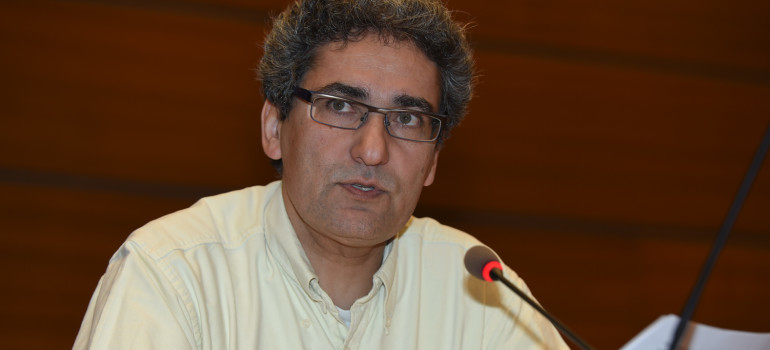In the following pages, you will find CETIM’s English declarations to the UN on the theme of the rights of peasants
INFORMAL CONSULTATIONS ON THE RIGHTS OF PEASANTS November 2014 [Extract from the declaration] CETIM gives its unwavering support to the process initiated in the Working Group charged with drafting a Declaration on the Rights of Peasants and Other Persons Working in Rural Areas and assures its support to your presidency. CETIM also welcomes the growing […]
Continue reading
HUMAN RIGHTS COUNCIL 26th session June 2014 [Excerpt from the statement] Famine and malnutrition continue to affect nearly a billion people in the world, 80% of whom live in rural areas and most of whom are food producers such as small family farmers. The latter are confronted, without any protection, not only with the rules […]
Continue reading
The mining project of Oceana Gold (formerly Pacific Rim) in El Salvador threatens the environment and the livelihoods of communities, Local populations oppose the project and are victims of human rights violations. The government has refused to allow the project to continue and is now being sued by Oceana Gold at the World Bank’s International Centre for Settlement of Investment Disputes (ICSID). The company is demanding 300 million dollars in compensation.
Continue reading
HUMAN RIGHTS COUNCIL 25th session March 2014 [Excerpt from the statement] CETIM and FIMARC have long been committed to the promotion and protection of the right to food. They are also committed to the defence of peasant and family farming. Today, this peasantry is threatened with extinction, despite the fact that it feeds the world […]
Continue reading
The property and the distribution of the land have always been major stumbling blocks in Guatemala. They have been the source of many violent conflicts and they have structured the social and ethnical power relations and determined the economic and class stratification in the country. This is consequently reflected in the situation of indigenous daily farm workers, which make up 69% of this agricultural workforce, and of which 74.8% live in poverty. Their working conditions sometimes resemble slavery: the working contracts are oral, days count between 9 and 12 working hours and usually there is little or no right to holidays or weekly rest days. Social security is non existent and death threats are reported for workers who organize themselves in trade unions. The state of Guatemala should take measures to comply with its obligations under the terms of numerous international conventions.
Continue reading
« Previous
1
…
5
6
7
8
9
…
14
Next »



